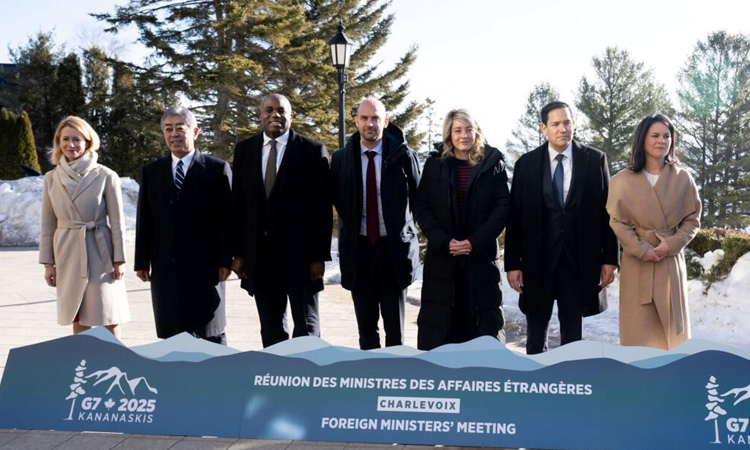News Flash
News Flash

CHARLEVOIX, Canada, March 14, 2025 (BSS/AFP) - Canada called Thursday on the
Group of Seven powers to back Ukraine against Russia's "aggression" as US
President Donald Trump's more conciliatory approach toward Moscow split the
club of wealthy democracies.
Canada, the current G7 president, is gathering foreign ministers for three
days of talks inside a rustic hotel in snow-dusted Charlevoix, on the banks
of the St. Lawrence River in Quebec.
Once broadly unified, the G7 -- Britain, Canada, France, Germany, Italy,
Japan and the United States -- has been rattled since the return of Trump,
who has reached out to Russia and slapped punishing trade tariffs on close
allies and competitors alike.
Before the full talks, Canadian Foreign Minister Melanie Joly sat down with
Secretary of State Marco Rubio, the highest-level US official to visit since
the inauguration of Trump who has taunted the United States' northern
neighbor as the "51st state."
Canada put its maple-leaf flag next to the US Stars and Stripes in a meeting
room where Joly and Rubio exchanged French-style pecks on the cheek and shook
hands. They did not respond to questions and issued no statements.
Joly, opening the formal session of the G7, said she hoped to find ways to
"continue to support Ukraine in the face of Russia's illegal aggression."
"We all want to see just and lasting peace in Ukraine," she said.
Rubio has called for the G7 to avoid "antagonistic" language toward Russia,
saying it would hinder US diplomacy that could end the war that has killed
tens of thousands of people.
Since Trump took over from president Joe Biden, US statements have switched
from referring to Russia's "invasion" or "aggression" against its neighbor
since 2022 to speaking of the "Russia-Ukraine conflict."
Ukraine, under heavy pressure from Trump who briefly cut off aid, agreed with
Rubio in talks Tuesday in Saudi Arabia to a US proposal for a 30-day
ceasefire with Russia.
Russian President Vladimir Putin on Thursday voiced general support for a
ceasefire but suggested he wanted to speak to Trump about it.
- Compromise emerging on statement -
German Foreign Minister Annalena Baerbock warned that "peace in Europe will
only come through strength."
"What good is a ceasefire that would then lead to even more suffering,
destruction and war in Europe after two or four years?" she said on the
sidelines of the G7 talks.
Diplomats said the G7 statement may paper over broader differences on Ukraine
by focusing on backing the ceasefire plan.
If the G7 cannot put together a common statement, "it only benefits countries
like China and Russia and sends a message to the Global South," Japanese
foreign ministry spokesman Toshihiro Kitamura said.
A diplomat from another country, speaking on condition of anonymity, expected
a statement to come together and said it was no small feat considering the
level of disagreement.
"Everyone is sticking to their positions, although not in a way that seeks to
attack others," he said.
Just as Rubio was meeting in Quebec, Trump doubled down in his rhetoric by
saying that Canada "only works as a state" of the United States.
"This would be the most incredible country visually. If you look at a map,
they drew an artificial line right through it between Canada and the US,"
Trump told reporters in Washington.
Baerbock sported a white suit and European Union foreign policy chief Kaja
Kallas a red dress -- leading the two to say that they chose their colors to
show solidarity with Canada.
- Trade war -
The G7 meeting came just as Trump's sweeping 25 percent tariffs on all steel
and aluminum imports came into effect Wednesday, leading the European Union
and Canada to unveil billions of dollars in counter-tariffs.
Japanese Foreign Minister Takeshi Iwaya said he raised concerns about the
steel and aluminum tariffs in a meeting with Rubio, warning that Americans
would be economically hurt.
Kallas said that China -- identified by Trump as the top competitor to the
United States -- gained from the trade war Washington was waging on its
allies.
"Laughing at the side is China. It's definitely benefiting from this. So
there are no winners. Eventually, the consumers end up paying more," she told
CNN from the talks.